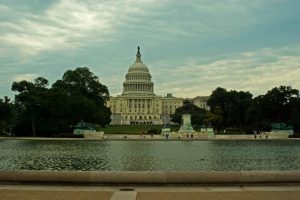Congress Weighs Easing U.S. Marijuana Restrictions
Those in favor of legalizing marijuana – or at least in protecting the state-level freedoms they have now – are fearing federal sanctions from an unfriendly new administration.
Even though politicians on both sides of the aisle favor both medical marijuana access and even recreational marijuana, there is concern that the new U.S. Attorney General Jeff Sessions will crack down on businesses and individuals abiding state-level marijuana laws. There are currently 28 states that have legalized the drug for medical use, and eight, including California, that allow it to be used for recreation.
For this reason, three new bills have been introduced that protect the rights of pot growers, distributors and users. In addition, advocates are coming out in full force to encourage lawmakers to support pro-marijuana measures.
For example, on April 20th, a group of marijuana advocates showed up at a joint session in Congress to pass out joints – and spread awareness that the rule preventing the U.S. Drug Enforcement Administration and the Department of Justice from interfering in states’ medical marijuana laws is about to expire. Without that protection, Sessions and the Trump administration could start cracking down on states like California that allow the drug to be used for both medical and recreational purposes.
The three bills introduced in Congress, all part of The Path to Marijuana Reform, introduced by Democrats from Oregon. are:
- Small Business Equity Tax Act. This provision would carve out an exception to U.S. tax code 280E, which currently prohibits cannabis-based businesses from taking the kind of business tax deduction all other businesses enjoy. If cannabis business operations could retain more profits, they can grow more quickly and reinvest greater sums.
- Marijuana Policy Gap Act. This measure help resolve the discrepancy between federal and state marijuana laws. Specifically, it would do away with civil asset forfeitures and criminal penalties for companies that are operating in compliance of state-level marijuana laws – even if those laws are accepted at the federal level. It would also open the doors to banking for marijuana businesses, as well as allow military veterans to obtain access to medical marijuana that is legal at the state level.
- Marijuana Revenue and Regulation Act. This law would de-schedule marijuana (currently considered a Schedule I narcotic), tax it and set up a regulatory framework. Essentially, it would give the federal government a means to treat marijuana like alcohol. Importers, producers and wholesalers would have to obtain federal government permits to operate. States could still choose to make the sale or distribution of the drug illegal within their borders.
This package of reforms, if passed, would erase a number of the key challenges and legal grey areas so marijuana businesses face.
During the campaign, Trump insisted medical marijuana was a states rights issue. However, recent statements by Sessions – and others in the administration – have resulted in a lack of confidence that policy will continue. For example, secretary of homeland security John Kelly called it a “dangerous gateway drug” that leads to harder drugs, and supported the position that violations for possession be against federal law.
The Los Angeles CANNABIS LAW Group represents growers, dispensaries, collectives, patients and those facing marijuana charges. Call us at 949-375-4734.
Additional Resources:
In Case You Missed It, Lawmakers Just Introduced 3 New Marijuana Reform Bills in Congress, April 9, 2017, By Sean Williams, Fox Business
More Blog Entries:
Marijuana Equipment Business is Booming, April 14, 2017, L.A. Marijuana Attorney Blog
 Cannabis Law Group's Medical Marijuana Legal Blog
Cannabis Law Group's Medical Marijuana Legal Blog




